 The topic of inflation has been on the minds of many in recent years. In the aftermath of the pandemic, inflation has reached lofty levels, and many people are feeling the strain as a result. One of the biggest attempts to regain control over this issue has been the Inflation Reduction Act, which includes provisions that impact the HVAC industry. This article will go over the basics of what you need to know to take advantage of the programs featured in this bill.
The topic of inflation has been on the minds of many in recent years. In the aftermath of the pandemic, inflation has reached lofty levels, and many people are feeling the strain as a result. One of the biggest attempts to regain control over this issue has been the Inflation Reduction Act, which includes provisions that impact the HVAC industry. This article will go over the basics of what you need to know to take advantage of the programs featured in this bill.
If you have been thinking about HVAC replacement, or if you just need some A/C repair work performed, Berico should be your first choice. A known leader in the industry made up of a team of trusted professionals, you can be sure that Berico will exceed your expectations at every turn. Call today to get started.
A Great Opportunity
Simply put, the Inflation Reduction Act represents a great opportunity for homeowners to have new HVAC equipment installed in their homes at a discount. That discount comes in the form of a tax credit – more on that in a moment – and it will effectively lower the cost of upgrading to a new HVAC system.
So, for example, if you have an aging air conditioner serving your home and you have been thinking about upgrading for a while, doing it while this tax credit program is in effect makes a lot of sense. Not only do you get the improved performance and efficiency of a new system, but you get it at a lower price than would be able to get otherwise.
An Eye on Efficiency
So, why would the government want to subsidize the purchase of new HVAC equipment for countless Americans? Well, there can be plenty of complex economic arguments to be made here, but that’s outside the scope of this post. At least part of the motivation comes down to environmental concerns, however, as new HVAC equipment is going to be more efficient than HVAC equipment that was produced in years gone by.
In order to qualify for this program, the equipment you purchase needs to be ENERGY STAR-certified. Fortunately, it’s not hard to find such equipment, so you won’t have to pick from a narrow set of options to check that box – it will be easy to satisfy that requirement while getting a great system that can serve your home well for many years to come.
The Basics of the Credit
The part of the Inflation Reduction Act that is relevant to HVAC equipment is Tax Section 25C. In this section, you’ll find information about how much of a credit is available to those who have new, efficient HVAC equipment installed. As this is a tax issue, there are plenty of complicating factors and variables, but the basic concept is that you will receive a tax credit when you have qualifying equipment installed in your home.
Just how much of a credit is available? You can receive a credit of as much as 30% of the installation cost of HVAC equipment that meets the standards for the highest efficiency tier. That 30% mark is capped at $600 per air conditioner and furnace, and it is capped at $2,000 for heat pumps. If you decided to have a new air conditioner as well as a new furnace installed, you could claim the credit for both of those items.
It’s always important to point out that everyone’s tax situation is unique. While this credit is relatively straightforward by tax standards, you will still want to make sure you qualify and that everything you are purchasing fits with the requirements of the tax code. Take some time to read through the finer points if you plan on claiming this credit, or talk to your accountant just to be sure you are on the right track. It’s better to do some extra homework in advance than to find out later that you won’t actually be able to get the credit you were planning on receiving.
Upgrading Has Many Benefits
For some people, it’s hard to come to the decision to upgrade their HVAC equipment when the old system is technically still working. After all, this is a big expense, even with a tax credit, so it can be hard to make the choice to go ahead and schedule the installation of a replacement HVAC unit. However, if you take a moment to look at some of the many benefits that can come with this project, you might start to see it as an easier choice.
- Better performance. Simply put, aging HVAC equipment doesn’t work as well as newer stuff. Even if you have maintained your old system properly over the years, time is going to take a toll and it eventually won’t work quite as well as it once did. By upgrading now, you’ll be able to enjoy better performance immediately, such as more even heating or cooling throughout your house.
- Lower utility bills. Along with the savings that will come in the form of a tax credit, there is also the potential for lower monthly utility bills to consider. A new system will be more efficient than the older units, and as a result, you should find yourself paying less for energy month after month. These savings might seem modest at first, but they’ll just keep coming until they add up to a notable sum.
- It might be quieter. This point will depend on how your current system is working and exactly how old it is, but you might find that new HVAC equipment runs quite a bit quieter than what you are used to, and often it takes up much less space, which is particularly nice if the system is in a closet or utility room that then has some extra space. Who doesn’t need more storage space?
Get Started Today
If you have been needing new HVAC equipment but are worried about the A/C replacement cost for your home, getting help from the Inflation Reduction Act is a great opportunity. Berico always offers transparent HVAC pricing, so you can reach out to the team today to get a quote on a system that will serve you well for years to come.
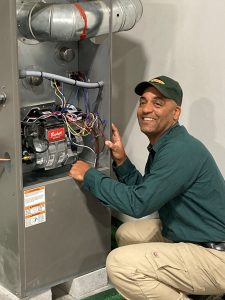 If we are being honest, you’d probably rather ignore your HVAC system most of the time. You want it to do what it is supposed to do, of course, but ideally, it will do that work in the background while you go on with your day-to-day life. With that said, it is important to pay your system some attention from time to time, as doing so will lead to far better results in the long run. Furnace tune-ups are the best way to care for your system to make sure it has the best possible chance of delivering a long and useful life in your home.
If we are being honest, you’d probably rather ignore your HVAC system most of the time. You want it to do what it is supposed to do, of course, but ideally, it will do that work in the background while you go on with your day-to-day life. With that said, it is important to pay your system some attention from time to time, as doing so will lead to far better results in the long run. Furnace tune-ups are the best way to care for your system to make sure it has the best possible chance of delivering a long and useful life in your home.
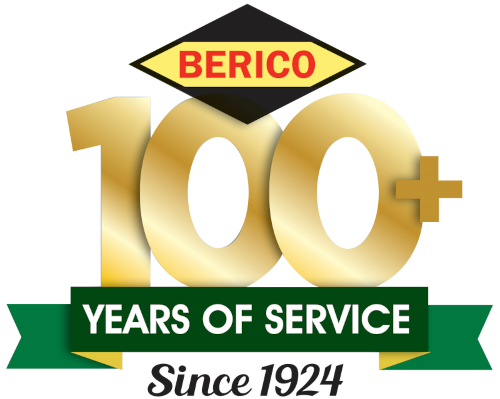
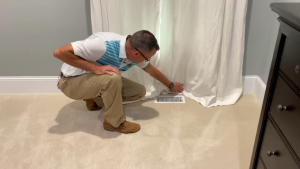 As you make your way through a hot summer in North Carolina, one of the biggest luxuries you can have available is a functioning air conditioner in your home. With AC on your side, those roasting afternoons and evenings are far more enjoyable – but only if your
As you make your way through a hot summer in North Carolina, one of the biggest luxuries you can have available is a functioning air conditioner in your home. With AC on your side, those roasting afternoons and evenings are far more enjoyable – but only if your 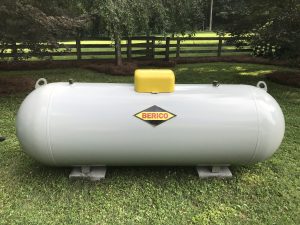 If you use propane to power the heating and cooling of your home, you’ll need to have a reliable source of that propane to avoid downtimes throughout the year.
If you use propane to power the heating and cooling of your home, you’ll need to have a reliable source of that propane to avoid downtimes throughout the year.  All mechanical systems need maintenance. Even the best equipment needs to be maintained over time if it is going to continue to work properly. The HVAC system in your home is no exception to this rule, yet many people don’t know how frequently they are supposed to be providing that system with care. This post is going to outline some timing basics that you should keep in mind for
All mechanical systems need maintenance. Even the best equipment needs to be maintained over time if it is going to continue to work properly. The HVAC system in your home is no exception to this rule, yet many people don’t know how frequently they are supposed to be providing that system with care. This post is going to outline some timing basics that you should keep in mind for  Freezing up is one of the most common issues to come up with air conditioners. For many homeowners, this is a confusing issue, as they will see ice accumulating on the side of their outdoor unit, despite warm temperatures all around. What is going on? This article will break it down to help you understand the problem.
Freezing up is one of the most common issues to come up with air conditioners. For many homeowners, this is a confusing issue, as they will see ice accumulating on the side of their outdoor unit, despite warm temperatures all around. What is going on? This article will break it down to help you understand the problem.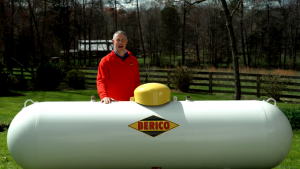 To the general public, natural gas and propane seem like pretty much the same thing. If you aren’t familiar with the differences, you might believe that these are just two different names for the same fuel – but that is not the case. Natural gas and propane are two very different products, and as such, one is a cleaner option than the other. This article will get to the bottom of the matter and clarify any confusion.
To the general public, natural gas and propane seem like pretty much the same thing. If you aren’t familiar with the differences, you might believe that these are just two different names for the same fuel – but that is not the case. Natural gas and propane are two very different products, and as such, one is a cleaner option than the other. This article will get to the bottom of the matter and clarify any confusion. The topic of inflation has been on the minds of many in recent years. In the aftermath of the pandemic, inflation has reached lofty levels, and many people are feeling the strain as a result. One of the biggest attempts to regain control over this issue has been the Inflation Reduction Act, which includes provisions that impact the HVAC industry. This article will go over the basics of what you need to know to take advantage of the programs featured in this bill.
The topic of inflation has been on the minds of many in recent years. In the aftermath of the pandemic, inflation has reached lofty levels, and many people are feeling the strain as a result. One of the biggest attempts to regain control over this issue has been the Inflation Reduction Act, which includes provisions that impact the HVAC industry. This article will go over the basics of what you need to know to take advantage of the programs featured in this bill.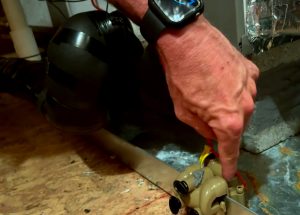 It’s quite a frustrating experience to have to sweat through some hot days and nights at home because your air conditioner is no longer functioning. Ideally, you’d have
It’s quite a frustrating experience to have to sweat through some hot days and nights at home because your air conditioner is no longer functioning. Ideally, you’d have 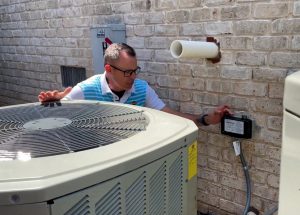 If you have an air conditioner that serves your home, you are used to the sound it makes while running. It will typically make one louder noise when it first kicks on, then it will just hum in the background as the cool air is delivered. But what if your
If you have an air conditioner that serves your home, you are used to the sound it makes while running. It will typically make one louder noise when it first kicks on, then it will just hum in the background as the cool air is delivered. But what if your